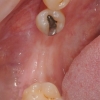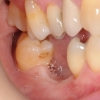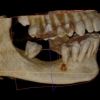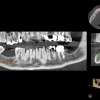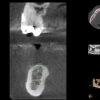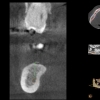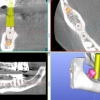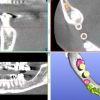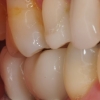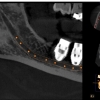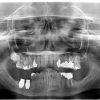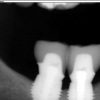 Are you missing teeth and have little height of bone? Have been told your sinus or nerve is too close and dental implants are not an option? Would you consider dental implants if bone grafting was not necessary?
Are you missing teeth and have little height of bone? Have been told your sinus or nerve is too close and dental implants are not an option? Would you consider dental implants if bone grafting was not necessary?
There are circumstances where use of conventional dental implants to replace missing teeth is not possible. Here are two very common situations:
- Dental Implants in the back of the lower jaw where bone has receded and there is little distance between top of the bone and a nerve which gives sensation to lip and chin area.
- Dental Implants in the back of the upper jaw where the maxillary sinus is in close proximity and patient does not want sinus lift bone grafting to augment it.
In such circumstances, we do have the option of using short and wide dental implants to replace the missing teeth without bone grafting or potential damage to the nerve. These implants work very predictably and can provide strong foundation for the teeth they support and years of great service to the patient. The implants do come in various lengths (5mm, 7mm, 9mm, and 11mm). Here is the recommended treatment scenario:
- The surgeon obtains a CBCT (cone beam CT scan) to get precise measurements and the amount of available bone. The vital structures (sinus and nerve) are localized and measured.
- The proper dental implant size is selected.
- A surgical guide is made using either models or using 3-D computer assistant planning.
- The implants are carefully placed by the surgeon using the surgical guide
- Following adequate time of healing (3-4 months) the implants are restored by the restorative dentist.
With careful planning and team work, we can help many such patients get new implant-supported teeth and restore their chewing function effectively.
Patient Example:
